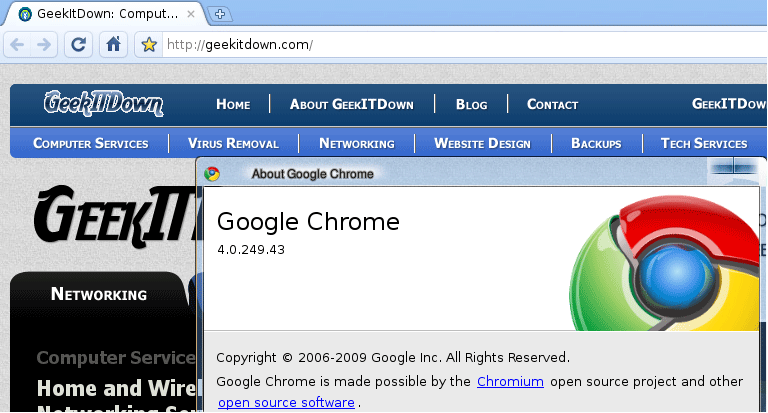Window to the Web
Browsers are probably the most used application on any computer system regardless of operating system and hardware configuration. They are the visual window to the web and the number one tool for interacting online.
Without drudging up the past and reliving the evolution of the browser we’re going to take a look at a more recent trend in browser development. Speed. Microsoft’s Internet Explorer long controlled the browser market as they were the dominant operating system. Now users have many more choices available, in fact just listing them all would be a paragraph unto itself. Suffice to say, browsers have become very important to users and their online experience. Now with so many choices, some are trying to differentiate themselves as ‘the most this’ or ‘the most that’. The conversation has shifted towards speed with Google leading the way, or are they?
Google Chrome Sets the Bar High
Google’s offering has become a beacon for competing browsers. The Google Chrome browser has been designed to be fast in all aspects of browsing. Google has identified the most important factor to users surfing the net. Speed. Users want information faster and they want online applications and in-browser games to run faster. The demand for quick access and fast browsing has propelled Chromeas a major competitor in the browser race.
Chrome has been tested by various random speed tests and third party benchmark testing. While some are more thorough or detailed than others, the overall results show Chrome to be a leader in browser speed. As a result, Chrome has forced the hand of other browser developers to put more emphasis and focus towards browser speed. Even if speed is not the most important factor for you while online, the positive effects from browser development towards faster browsing will improve your overall experience. Browsers like Safari and Opera have already started making speed one of the most important factors in current and future development to remain competitive.

The Competition
Opera development has rolled out a pre-alpha release of their web browser which shows incredible speed increase in javascript. If Opera is able to maintain the speed increase shown in the pre-alpha version, users could see a very impressive alternative to Google’s Chrome. At very least Opera will be a close second in speed to Chrome unless additional enhancements to the other browsers are added , Firefox included.

As mentioned, without some more attention to speed from the Mozilla team, Firefox is likely to slip in market share as users become more informed about alternate browsers and seek faster and faster browsing experience. That’s not to say Firefox isn’t making improvements to speed, in fact the 3.6 beta 1 shows some real progress in speed when opening multiple tabs. Additionally, memory consumption has been a real focal point and 3.6 beta 1 shows impressive results. While not directly speed related, memory consumption on older or slower machines is very important. It stands to reason that browsing speed will increase as memory usage decreases. While those improvements will benefit the user, there is still much to be done to make up ground on Chrome.

For those wondering about Internet Explorer advancements, there really isn’t much to say. IE is slower than all the browsers mentioned in this article but at the same time Microsoft does not make robust announcements about upcoming advancements in their browser technology. Does that mean they are not working on creating a faster browser? No, but it does mean we likely won’t know until they release an update. IE is still playing catchup in some areas and so we will have to wait and see if they have shifted focus to point towards speed and faster browsing.

Conclusion
Bottom line is, whether you are a fan of Google or are scared to the bone, the Chrome browser has elevated the development of browsers with regards to speed. In the end, it doesn’t matter who wins the award for fastest browser, what does matter is that all browsers will be competing for the title. When all browsers are pushing the limits of browser speed, we all win. Their competitive nature will benefit all users. We will search faster, gather information quicker and better utilize time online.
If there is one prediction to make, it’s that browsers are sure to change over the next decade and likely become a far more integral part of our current desktop experience.
While it would be nearly impossible to cover all browsers, those listed in this article are regarded as top tier in terms of popularity and so we chose to focus our efforts towards them.
Which browser do you think will excel in the area of speed? How do you think browsers will evolve over the next decade? Your opinions are welcome, so let us know!
Thanks to our readers and visitors for the past year. Please let us know what you would like to see in the year to come and what topics we can further explore for you. We’ll do our best to improve as we move forward. From all of us at GeekITDown, Happy New Year!

